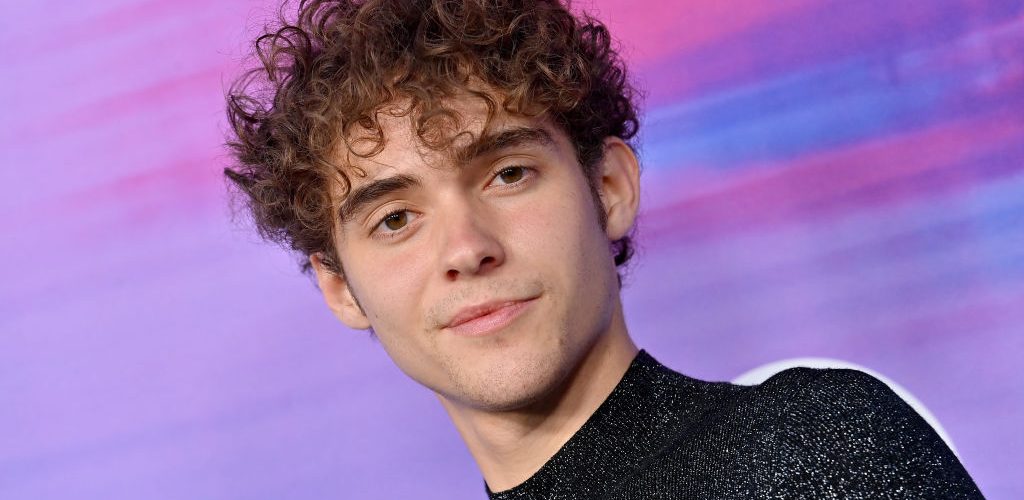Video of openly gay actor Joshua Bassett’s recent baptism at Bethel Church, a prominent conservative evangelical megachurch in Redding, Calif., set off competing responses — including Basset’s.
Conservative Christians — who hailed Bassett’s public statement of faith as an example they hoped many other young people would follow — celebrated the video across social media. Many of them hoped the High School Musical: The Musical star’s conversion would lead him to leave his “gay lifestyle” behind.
However, when word circulated the church where Bassett was baptized is well-known for its anti-LGBTQ+ stances and conversion therapy program, Bassett responded in an Instagram comment. “I was unaware of all of the views of this church and disagree with some of them,” he posted, before reiterating his heart is “with Christ alone.”
Hip environments
Churches such as the one where Bassett was baptized have grown in popularity because of their hip environments, incredible music and many high-profile celebrities endorsing their message of hope in a chaotic world.
This outer shell of “hipness” has proven effective at drawing masses of young people to consider Christianity.
This outer shell of “hipness” has proven effective at drawing masses of young people to consider Christianity. Over the course of their time in these churches, they’re slowly influenced by anti-LGBTQ+ doctrine. They become convinced of its “truthfulness” because of the emotional experiences they encounter in these environments. This makes them believe God is indeed present in these communities, which validates their toxic beliefs.
Unfortunately, situations like Bassett’s are far too common. Contrary to popular perceptions, surveys consistently show LGBTQ+ people generally tend to identify as more spiritual or religious than the overall population.
Many LGBTQ+ people wander into church communities that give off an outward appearance of inclusivity and welcome and are impacted by their empowering messages. Later, when they seek to go deeper in the community — becoming a member, serving or wanting to get married — they learn these communities are not inclusive at all toward LGBTQ+ people and often are actively anti-LGBTQ+.
Sense of rejection and anger
This often results in a sense of rejection and anger for being deceived into believing LGBTQ+ folks found a community where they can belong authentically. The other reaction tends to be great inner struggle, through which the LGBTQ+ person has to wrestle with their sense of belonging to their community. They often feel pressure to suppress or change their sexuality or gender to align with the “truth” as their church community defines it.
Countless studies document the tangible physiological harm that comes to queer people who feel pressure to suppress or change their identity in order to be accepted by a religious community.
This latter path is truly deadly. Countless studies document the tangible physiological harm that comes to queer people who feel pressure to suppress or change their identity in order to be accepted by a religious community. Still, many LGBTQ+ people, now deep in a church community and disconnected from many outside of it, feel they have no choice. To belong, they must conform — so they try.
The church where Bassett was baptized is known for its ex-gay ministry called “Changed Movement.” The church highlights stories of LGBTQ+ individuals who claim to have experienced “deliverance” from their queer identity through devotion to Christ.
One can only imagine …
If Bassett’s statement is accurate, he was welcomed into Bethel Church as an openly LGBTQ+ person, unaware the goal of his conversion, from the perspective of Bethel’s theology, is deliverance from his God-created sexuality. One can only imagine the tension someone like Bassett must feel — experiencing what appears to be a powerful conversion in this environment, only to be told one of the goals of his newfound faith in Christ is the severing of a core part of who he is.
As an LGBTQ+ Christian pastor and theologian, I am deeply grieved and angered by Bassett’s experience. I am grieved because I’ve been in his position — forced into manipulative religious communities that insisted my faith was only legitimate if I sought to “crucify my flesh,” which to them meant to repress my sexuality.
From the outside, it’s easy to critique Bassett. Why not just turn away from this community and move on? But when you’re on the inside, after having a conversion experience that seems to validate the legitimacy of their “ministry,” it’s hard not to consider any desire to critique or reject the community as “temptation.”
I’m also angry because churches like Bethel continue to lure in not only LGBTQ+ people but influencers and celebrities who promote their stylish, high-energy, seemingly inclusive version of Christian faith. Then they slowly but surely indoctrinate the new converts into far-right religious and political views.
On one hand, this is nothing new. Using religion and spiritual experiences to manipulate people, especially young people, is an age-old method of indoctrination. But on the other end of this religious conveyer belt are countless individuals who experience deep religious trauma or else reject the legitimacy of faith altogether because of the toxic version of Christianity they were initiated into.
I pray Bassett may find a path toward progressive, inclusive Christian faith that celebrates the beautiful diversity of God’s creativity in humanity before the damage is done.

Brandan Robertson
Brandan Robertson is a New York City-based author, activist and public theologian working at the intersections of spirituality, sexuality and social renewal. He is lead pastor of Metanoia Church, a digital progressive faith community, and host of The Unorthodox Podcast. He is the author of seven books on spirituality, justice and theology. Named by the Human Rights Campaign as one of the top faith leaders in the fight for LGBTQ equality, Robertson has worked with political leaders and activists around the world to end conversion therapy and promote the human rights of sexual and gender minorities. He earned an undergraduate degree from Moody Bible Institute and master’s degrees from Iliff School of Theology and Eastern Illinois University. He is pursuing a Ph.D. in religion at Drew University.
Related articles:
No middle ground: The culpability of conservatives in queer violence
Panelists make the case against conversion therapy: It harms people
Two campaigns launched to ban conversion therapy
A Southern Baptist saint: Gratitude for the life of Leslie Jordan


